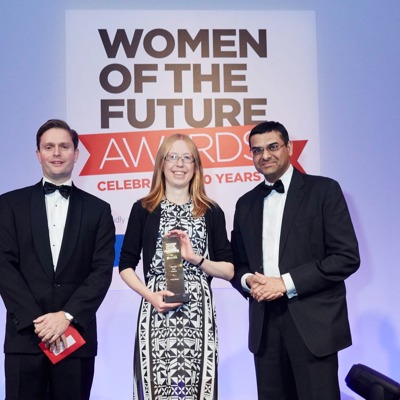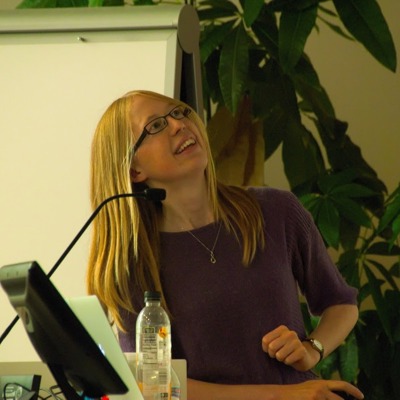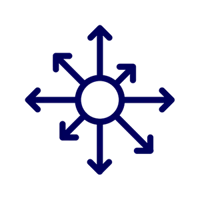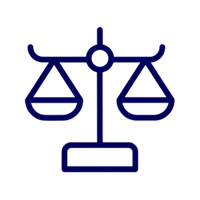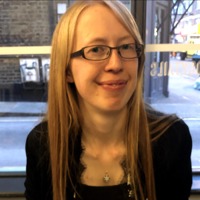
Tessa Baker
Professor of Cosmology, Royal Society University Research Fellow at Institute of Cosmology and Gravitation, University of Portsmouth
It's so easy to think that everyone around you knows more than you. The truth is they don't -- inside they have exactly the same questions and doubts. Confidence and the willingness to have a go at anything make all the difference.
About Tessa...
Who am I?
"My personality types are Influencer, Manager and Quality Controller. To be a research scientist you have to really dig into the details and numerical aspects of things, so the Quality Controller fits well. Now that I'm a senior scientist I do have some managerial aspects to my role -- running a team of younger scientists. I was more surprised by the Influencer! The stereotypical scientist we see in the media is introverted and geeky, but the reality is nothing like that -- we are all kinds of people, with all kinds of lifestyles and hobbies. I used to have a real dread of public speaking, and at school I could never have imagined presenting my work to lots of people. My training and research experience have taught me to overcome that, and now I've done it hundreds of times!"
What do I do?
"I work as a research astronomer, which means I get to study space for a living! I'm based at a university, so I work within a group of about 30 other scientists of all ages and levels who research in similar fields. I have the freedom to research whatever I like, so my job involves a lot of creative thinking. Once I've found a good idea, I do mathematics, write computer codes and analyse data to make it a reality. I really like the balance of skills my work involves, and the big reward is presenting my own original results to other scientists by writing papers or giving presentations.Another exciting aspect of my job is that I'm part of the team behind several major new space satellites and telescopes. These experiments (which cost millions of pounds to build) bring us new data that can reveal completely unexpected things about our universe. I work with other scientists all over the world, and my job involves a lot of international travel to visit collaborators and attend conferences (when there's not a global pandemic on, of course...).I'm a mentor to younger scientists and students, which means we often work together on projects. I also do some teaching to university-level undergraduates -- that can mean giving lectures to ~100 people!"
How did I get here?
"When I was at school, I had absolutely no idea what I wanted to do. It wasn't until I was about 16 or 17 that I started reading popular science books and magazines, and I was fascinated by all the crazy stuff the universe contains -- black holes and the Big Bang for starters! It was so far from anything we can experience on Earth, and mathematics was one of the only ways to study it.I choose maths and science subjects for my A-levels, then went on to do a physics degree at university. After that I stuck around to do another advanced degree (a PhD), which is important if you want to go into research. That enabled me to get a job as a junior research scientist."
The life I live
"After a day's work, I like to mentally switch off for a while by going for a walk, run or swim. I like keeping fit but prefer to do it as an individual thing, some 'me time', rather than team sports. I'm currently learning to speak Maltese -- a really unusual language -- so I try to spend a little time studying that each day. I was never particularly interested in learning languages at school, but the more advanced I've become in my science career, the greater my appreciation for other skills like languages, cooking and yoga has become! My secret indulgences are posh chocolates and computer games (Stardew Valley is my favourite)."
My typical day
"Typically I'll start the day answering emails from students, collaborators, and managing other duties at my university. Then it's time for a meeting with one of my PhD students, where we try and think of ways around the latest stumbling block in their code or calculation. I'll quickly scan the latest papers published in my field, before having lunch with my colleagues and chatting. In the afternoon we might have a seminar from a visiting researcher, or I'll have a call with my international collaborators on the latest space satellite. Hopefully I'll squeeze in some more research time for working on my projects, or prepare teaching materials. "
My qualifications
"A-levels: Physics, Maths, Further Maths, BiologyMaster's Degree in PhysicsPhD in Astrophysics"
Tessa's Photos
